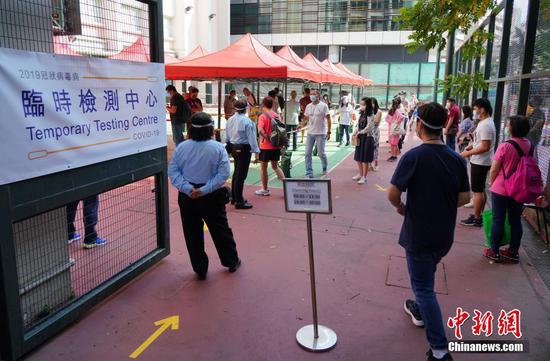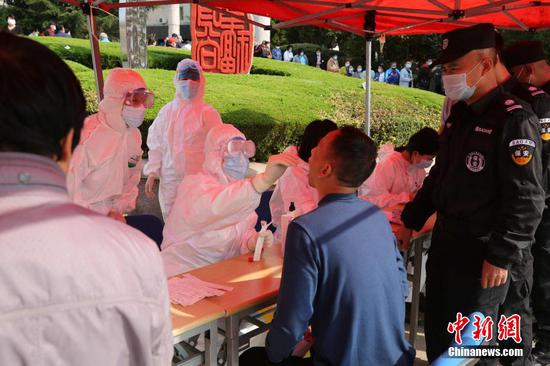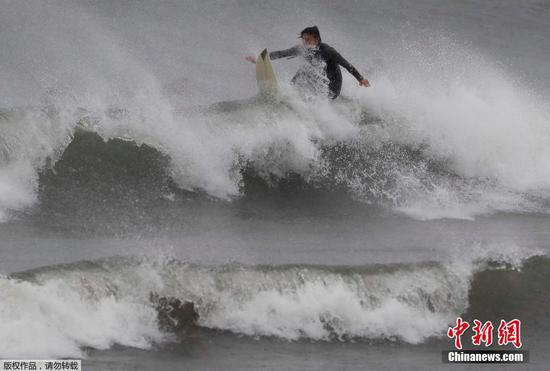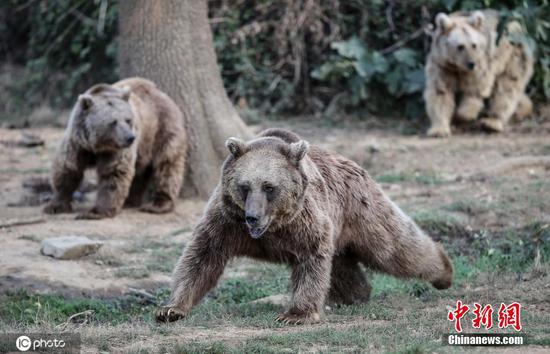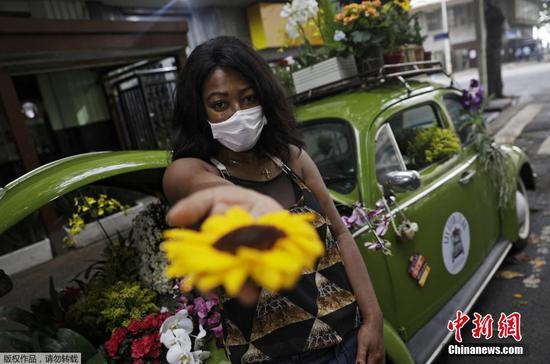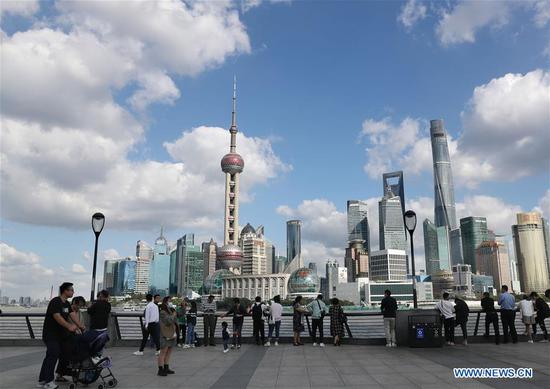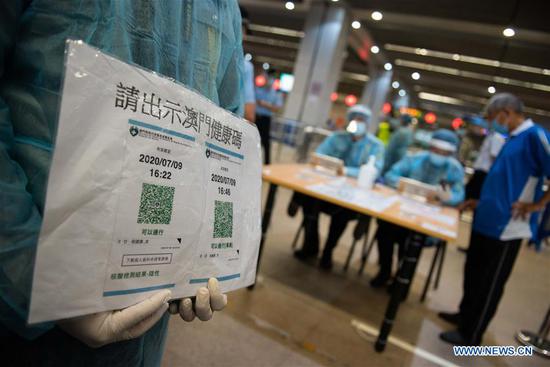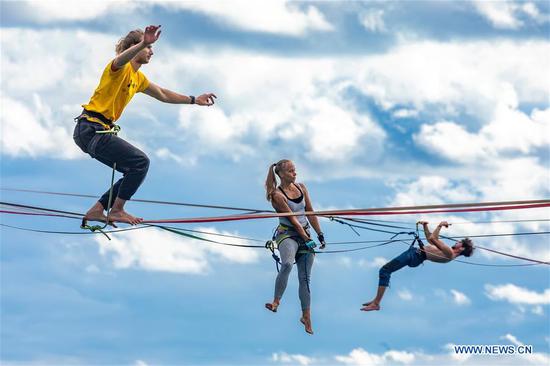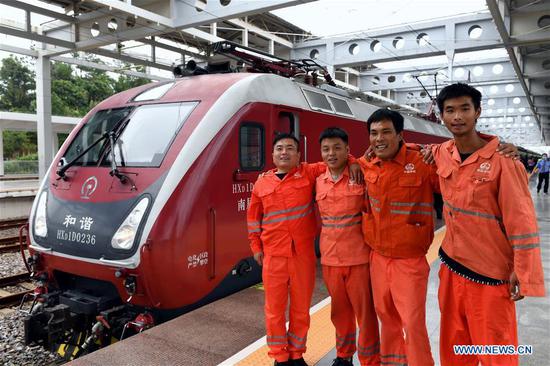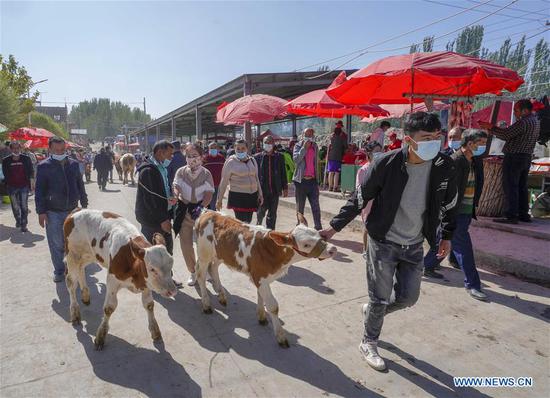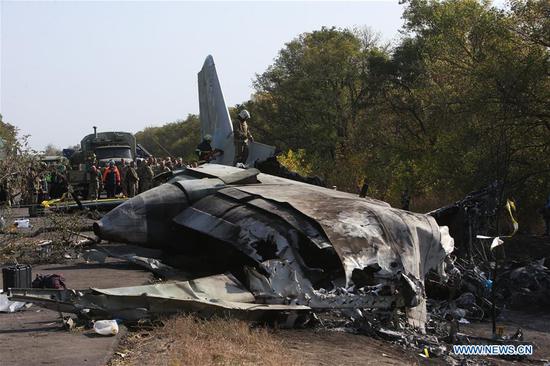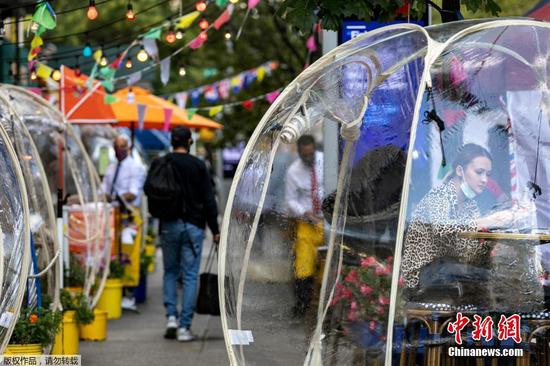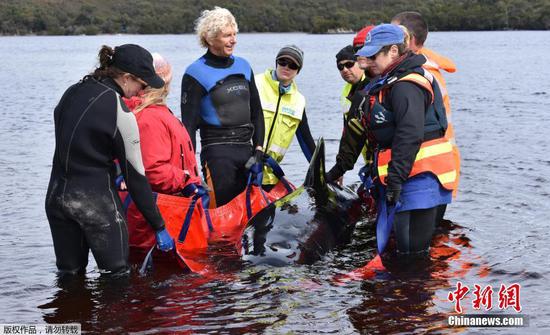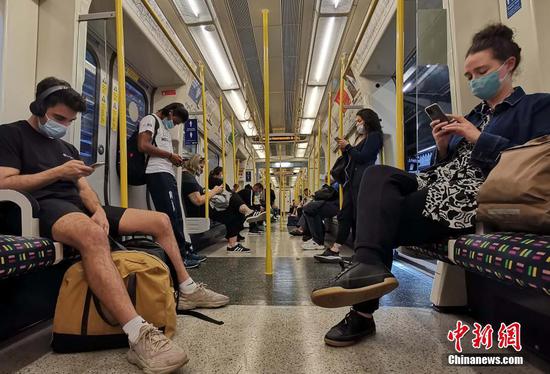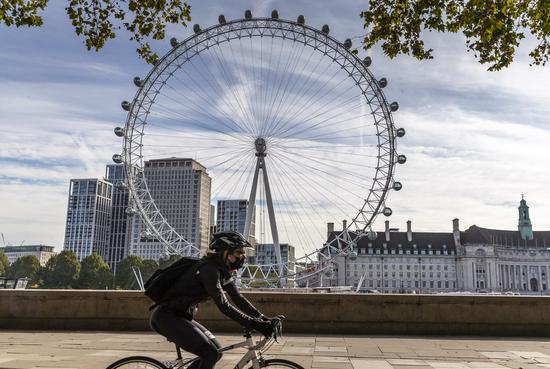
A woman wearing a face mask cycles past the London Eye in London, Britain, on Sept. 28, 2020. (Xinhua/Han Yan)
Imperial College London on Tuesday announced that a team of researchers in Britain is set to explore a human challenge study with the virus that causes COVID-19, which is "the first such study anywhere in the world".
The first stage of the Human Challenge Program will explore the feasibility of exposing healthy volunteers to the SARS-CoV-2 coronavirus, according to the college.
The study would recruit volunteers between the ages of 18 and 30 with no previous history or symptoms of COVID-19, no underlying health conditions and no known adverse risk factors for COVID-19, such as heart disease, diabetes or obesity, it said.
The first phase aims to discover the smallest amount of virus it takes to cause a person to develop COVID-19, upon completion of which researchers will then use this human challenge model to analyze how vaccines work in the body to stop or prevent COVID-19, to look at potential treatments and study the immune response.
"Our number one priority is the safety of the volunteers. My team has been safely running human challenge studies with other respiratory viruses for over 10 years. No study is completely risk-free, but the Human Challenge Program partners will be working hard to ensure we make the risks as low as we possibly can," said Chris Chiu, from the Department of Infectious Disease at Imperial College London and lead researcher on the human challenge studies.
The Human Challenge Program is a partnership between Imperial College London, the Department for Business, Energy and Industrial Strategy (BEIS), hVIVO, a leading clinical company with expertise in viral human challenge models, and the Royal Free London NHS Foundation Trust. NHS stands for Britain's National Health Service.
Explaining the purpose of the study, the college said that as the prevalence of COVID-19 rises and falls in populations, it can make it difficult for traditional vaccine trials to assess if vaccines work, because volunteers receiving the vaccine may not be naturally exposed to the virus.
Human challenge studies help clinical researchers establish which vaccines are most likely to succeed and also make it possible for scientists to compare the efficacy of vaccine candidates by testing them side by side to establish which is more effective.
Because a human challenge study deliberately infects the volunteers it should be possible for scientists to begin to establish efficacy very quickly, by testing if those who have had a vaccine are less likely to become infected with the virus, it also said.
"Deliberately infecting volunteers with a known human pathogen is never undertaken lightly. However, such studies are enormously informative about a disease, even one so well studied as COVID-19," said Professor Peter Openshaw, co-investigator on the study and director of the MRC-funded Human Challenge Consortium (HIC-Vac) at Imperial College London.
As higher viral doses may be linked to more severe outcomes, the researchers are aiming to infect volunteers with the lowest possible dose to trigger viral replication but minimize symptoms.
Before leaving the residential clinical facility, volunteers would be required to test negative for the presence of SARS-CoV-2 in two separate laboratory tests, highly sensitive to the presence of virus, according to the college.
The human challenge study will be reviewed by a specially convened ethics committee before any volunteers are enrolled and the Medicines and Healthcare products Regulatory Agency (MHRA), an exemplar globally of medicines and device regulation, will be asked to approve the study before it is conducted.
To bring life back to normal, countries, such as Britain, China, Russia and the United States, are racing against time to develop coronavirus vaccines.











